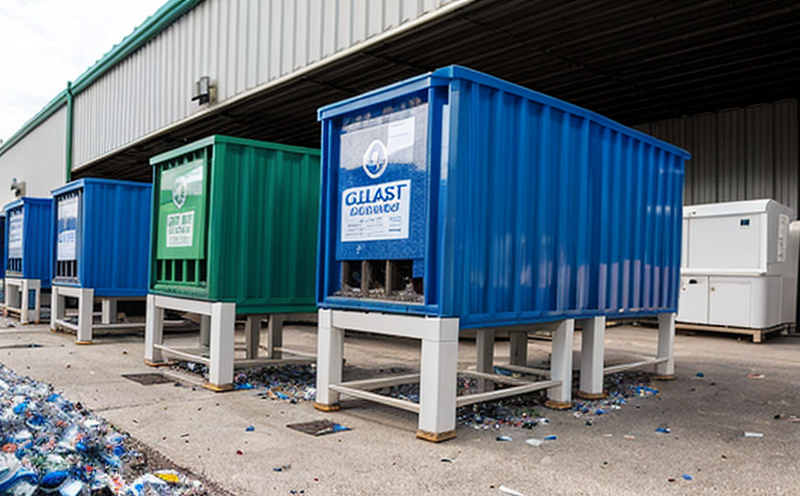ISO 12850 Gloss of Recycled Glass Surfaces
The ISO 12850 standard provides a method to measure the surface gloss of recycled glass. This measurement is critical for ensuring that recycled glass products meet aesthetic and functional standards, which are essential in various industries such as construction, automotive, and consumer goods.
Surface gloss plays a crucial role in determining how reflective a material's surface appears when light strikes it at a specific angle. In the context of recycled glass, measuring this property helps manufacturers assess the quality and performance of their products. This is particularly important since recycled glass must compete with virgin materials to meet market expectations.
The test method outlined in ISO 12850 involves using a gloss meter to measure the reflected light from the surface of a specimen cut into standard dimensions, typically square or circular pieces. The measurement is taken at an angle that mimics real-world lighting conditions. This approach ensures that the results accurately reflect how the recycled glass will perform under typical use.
The importance of this service cannot be overstated in waste management and recycling testing because it bridges the gap between sustainability goals and product quality. By ensuring high gloss levels, manufacturers can enhance the durability, appearance, and marketability of their products derived from recycled materials.
Moreover, compliance with ISO 12850 is crucial for companies that aim to demonstrate their commitment to environmental responsibility through the use of recycled glass in their products. This standard not only helps achieve regulatory compliance but also builds consumer trust by ensuring product quality and consistency.
The test method is widely accepted across industries, making it a reliable benchmark for evaluating recycled glass surfaces. By adhering to this standard, manufacturers can ensure that their products meet both internal quality standards and external regulatory requirements, thereby fostering customer confidence in the longevity and appearance of their recycled glass products.
Scope and Methodology
| Aspect | Description |
|---|---|
| Measurement Principle | The measurement principle involves using a gloss meter to determine the reflected light from the surface of the specimen. The instrument calculates the ratio of the light reflected at a specific angle, providing a numerical value that represents the gloss level. |
| Specimen Preparation | Standardized cutting is essential to ensure uniformity across samples. Specimens are typically cut into square or circular pieces with dimensions specified in ISO 12850, ensuring that all measurements can be compared accurately. |
| Test Conditions | The test should be conducted under controlled environmental conditions to minimize external variables. This includes maintaining a steady temperature and avoiding direct sunlight, as these factors could alter the measured gloss value. |
Customer Impact and Satisfaction
- Increased Product Quality: By adhering to ISO 12850, manufacturers can ensure that their recycled glass products meet high-quality standards, leading to customer satisfaction.
- Enhanced Brand Reputation: Compliance with international standards such as ISO 12850 enhances a company's reputation for environmental responsibility and product excellence.
The ability to measure gloss accurately using ISO 12850 helps customers, especially in the construction sector, ensure that recycled glass surfaces meet aesthetic expectations. This is particularly important in industries where visual appeal plays a significant role in customer perception and satisfaction.
International Acceptance and Recognition
- Global Standard: ISO 12850 serves as a global standard, ensuring that measurements are consistent across different regions. This consistency is crucial for international trade and collaboration.
- Regulatory Compliance: Adherence to this standard helps manufacturers comply with various regulatory requirements in different countries, simplifying market entry.
The widespread acceptance of ISO 12850 in the recycling industry underscores its significance. By using internationally recognized standards like this one, companies can ensure that their products meet high-quality benchmarks and are accepted by a global audience.





